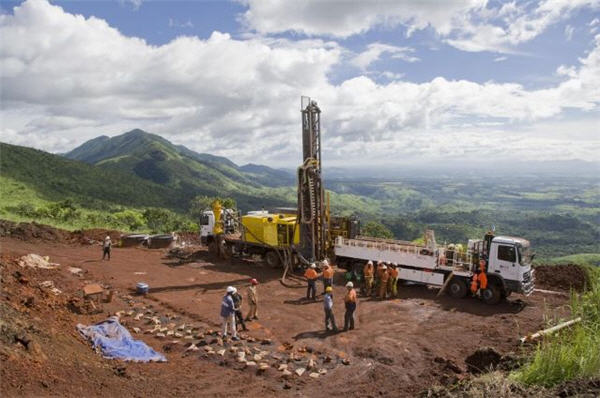Iron ore’s African future is advancing, Rio Tinto says

Rio Tinto Group is making progress on the development of Guinea’s giant Simandou iron-ore deposit, bringing a potential overhaul of global supply of the steel-making material closer into view.
Firing up production from the small West African nation would add a new source of high-quality ore and deliver a challenge to some lower-grade exports from Australia and Brazil, the existing largest suppliers.
Guinea is now regarded as a growth option alongside development of new mines in Australia’s Pilbara region
“There is more activity in Guinea,” Rio’s CEO Jean-Sebastien Jacques said in an interview. “Covid-19 remains a concern and the movement is pretty slow, but we are progressing our studies as we speak with our Chinese partner.”
The renewed effort marks a turnaround for London-based Rio, after an earlier deal to sell its share in Simandou to partner Aluminum Corp. of China, known as Chinalco, wasn’t completed. Guinea is now regarded as a growth option alongside development of new mines in Australia’s Pilbara region.
“We’re looking at the project on its own merits. We have a development pathway for the Pilbara, we are looking at a Simandou option — it’s still early days,” Jacques said in the interview on Friday.
Rio holds 45% of Simandou’s blocks 3 and 4 – which contains an estimated 2.8-billion tons of ore – and China Baowu Steel Group is leading a consortium to acquire Chinalco’s 40% stake, Caixin reported last month. China’s State-owned Assets Supervision and Administration Commission is pushing companies to move forward with the project, people familiar with the plans said in March.
A separate project covering the other half of Simandou – blocks 1 and 2 – could be up and running within five years, producing about 60-million tons a year in an initial stage and then expanding to more than 100-million tons a year, according to Societe Miniere de Boke, part of a consortium with Singapore’s Winning Shipping and Guinea’s government.
The prospect of a rival Guinea development and a potential move by BHP Group to boost export volumes in Australia may be acting to focus Rio’s attention on its plans, RBC Capital Markets analyst Tyler Broda said in a note last week.
“We would view this as a change in tack from Rio management and a potentially interesting one,” Broda said. “Rio could be making the first moves to protect its iron ore market share.
(By David Stringer)
{{ commodity.name }}
{{ post.title }}
{{ post.date }}




Comments